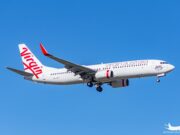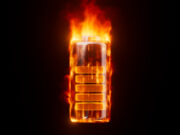Samsung is recalling some of its Galaxy Note7 smartphones because of instances in which the phones’ lithium-ion batteries have overheated and burst into flames. The company said it has received 92 reports of overheating in the United States alone; 26 of the reports involved burns and 55 reports involved property damage, including fires in cars and a garage.
Update: A smoke Galaxy Note7 reportedly disrupted the boarding of a Southwest Airlines’ flight on Oct. 5. Read more here.
A number of civil aviation authorities and airlines previously had warned that the phones should not be turned on or charged while aboard an aircraft and that they should not be stowed in checked baggage.
The European Aviation Safety Agency, in its early September warning, added that passengers also should inform cabin crewmembers if a cell phone becomes “damaged, hot, produces smoke, is lost, or falls into the seat structure.”
Samsung issued the recall on Sept. 15, telling consumers that it involves Galaxy Note7 phones sold before that date. Phones subject to the recall have 5.7-in (14-cm) screens and were sold in black onyx, blue coral, gold platinum and silver titanium, with a matching stylus.
After a U.S. Consumer Product Safety Commission recall, the Federal Aviation Administration (FAA) issued general guidance to airlines about the rules for carrying recalled or defective lithium devices on board aircraft as cargo or in carry-on luggage. “U.S. hazardous material regulations prohibit air cargo shipments of recalled or defective lithium batteries and lithium battery-powered devices, and passengers may not turn on or charge the devices when they carry them on board a plane,” FAA said. Passengers must also protect the devices from accidental activation, including disabling any features that may turn on the device, such as alarm clocks, and must not pack them in checked luggage.”
FAA issued the Safety Alert for Operators in conjunction with a Pipeline and Hazardous Materials Safety Administration safety advisory.
Consumers with the affected phones should “immediately stop using and power down the recalled Galaxy Note7 devices purchased before Sept. 15, 2016,” Samsung said. “Contact the wireless carrier, retail outlet or Samsung.com where you purchased your device to receive free of charge a new Galaxy Note7 with a different battery, a refund or a new replacement device.”


